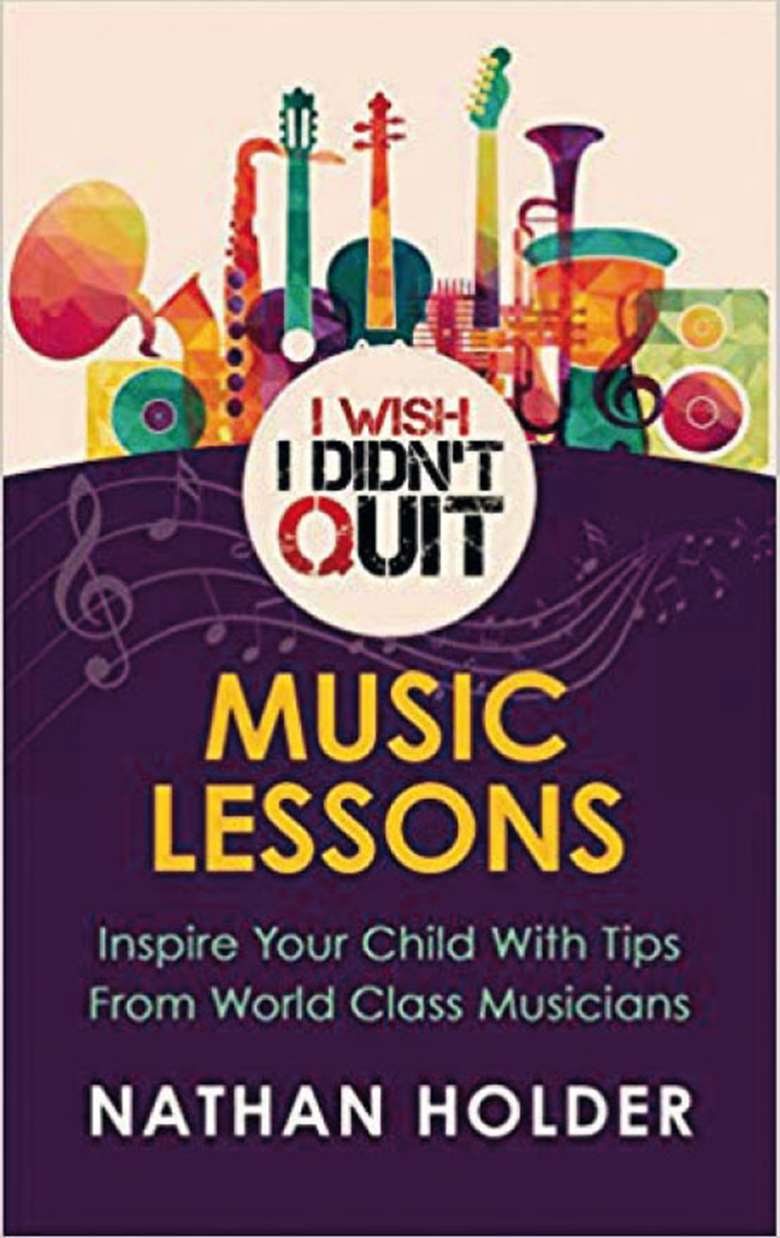Book Reviews: I Wish I Didn't Quit Music Lessons
Jane Werry
Wednesday, April 1, 2020
Jane Werry reviews I Wish I Didn't Quit Music Lessons by Nathan Holder, published by Holders Hill Publishing.

If we could receive a pound for every time an adult said to us ‘I wish I didn't give up my music lessons when I was younger’, most music teachers could retire immediately and comfortably, or at least afford an unusually luxurious holiday. This book aims to give parents a whole arsenal of ammunition to prevent their children's musical endeavours from falling by the wayside.
We've all shaken our heads at some point at the unfulfilled potential of some of the young people we teach, who fail to stick at their music long enough to reap the rewards, never becoming proficient musicians who can enjoy their music wholeheartedly. Nathan Holder's book aims to support parents in understanding the musical journey, its pitfalls and dangers, and the range of possible destinations to which it might lead.
Down-to-earth advice
This is no manual for tiger mothers or pushy showbiz parents: teachers will be very glad to hear that Holder gives sound advice against the traits of the ‘nightmare parent’. These include serious warnings against foisting musical ambitions on a child based on the parent's wish to make up vicariously for their own missed opportunities, or having fixed ideas about the musical direction that a child might pursue. Smaller issues are also discussed, including warnings about the perils of sitting in on a child's music lesson and micro-managing a child's music practice.
One of the things I liked most about the book was its emphasis on musical success taking many forms. Holder points out in no uncertain terms that being a successful musician is not necessarily about a record deal, making lots of money or being a celebrity. It can be about following a musical path with passion and applying a high level of skill to your musical activities, gaining satisfaction from doing so.
The book begins with a case study looking at the reasons why many children give up on their music lessons, most of which will be familiar to teachers. It's all there: the initial enthusiasm eroded by a realisation of the hard work and time required for real proficiency to come; the conflict between the music studied and what the pupil really wants to play; the dents in confidence caused by less-than-perfect concert performances; the competition for time between music practice and other activities; the short break from lessons that becomes more or less permanent – all things we have seen so many times.
Creating a nurturing environment
The various routes for finding instrumental or vocal tuition are outlined, with advice on finding a teacher, and whether or not to make grade exams a focus. I found it a little odd how keen the author was to point out the downsides of learning an instrument in a school setting; perhaps he has not witnessed the extremely positive outcomes that are certainly possible.
Holder then offers a wealth of tactics for making a success out of the whole endeavour. The teacher-pupil-parent relationship is examined, with very sensible advice given for setting up realistic expectations. Because the book is aimed at parents, Holder is very conscious of pointing out to them the teacher's point of view, and how it isn't vital to lay blame at the teacher's door if the pupil does not make expected progress.
The nature of musical talent is also explored, with a healthy balance struck between acknowledging natural ability and the importance of circumstances and sheer hard work. In the absence of having a musically nurturing family background, very sound advice is given for helping children to broaden their musical horizons. Parents are encouraged to expose their children to a wide range of listening, including live music, and discuss what they hear.
The multiple benefits awarded to young people when getting involved with church music, bands, orchestras and open jam sessions are laid out very clearly. Making music in a setting that involves learning from more experienced musicians – where the emphasis is on the musical outcome rather than the needs of each individual participant – is eloquently illustrated.
Many parents of children taking music lessons will not have had a successful musical education themselves: they may have given up their lessons, or simply not had musical opportunities. If you are ever asked ‘what can I do to support my child with their music?’, this book would be great to recommend.
The book could do with some editing, and there are numerous spelling errors that may grate on the reader. However, the spirit behind the book is well intentioned and valuable, and the information it contains may help many parents ensure that their children's musical education has a positive outcome.

